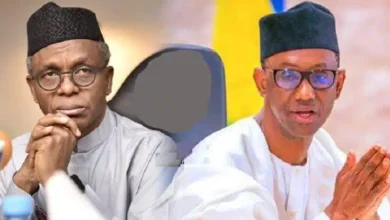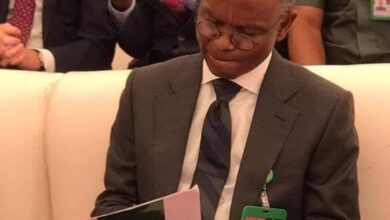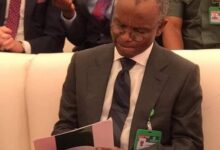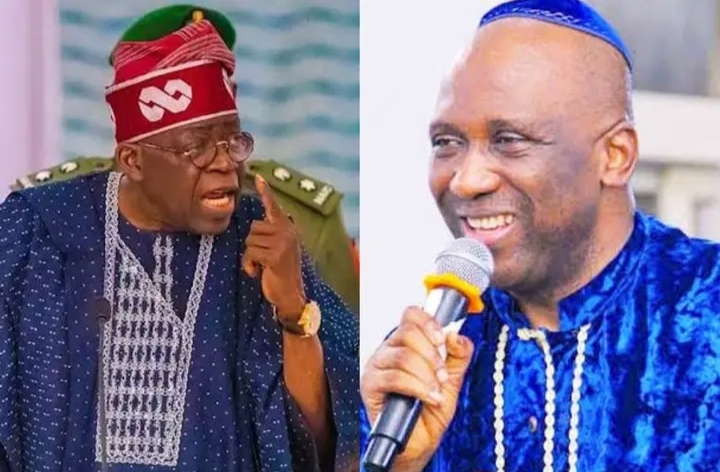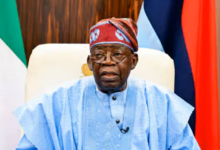Deterioration of security, democracy grinding governance progress to a halt in Africa – IIAG Report
*As Mo Ibrahim highlights link between poor governance and violence *Lists deterioration in governance, corruption and marginalisation as possible causes of conflict situation

By BASHIR ADEFAKA
“It’s not pretty,” he said before the release. “If there is deterioration in governance, if there is corruption, if there is marginalisation … people are going to pick up arms.”
The 2024 Ibrahim Index of African Governance, by the Mo Ibrahim Foundation, has revealed the negative impacts of insecurity and anti-democratic tendencies to governance progress made in Africa during the year under review.
A report in an email titled ‘Launch of 2024 Ibrahim Index of African Governance’, sent to The DEFENDER on Wednesday October 23, 2024, it is stated that governance progress in Africa grinds to a halt as security and democracy on the continent deteriorate further, threatening substantial advances in human and economic development.
Covering the decade 2014-2023, the 2024 IIAG shows that Africa’s overall governance progress came to a halt in 2022, following four years of almost complete stagnation, as substantial advances in both human and economic development are undermined by the ongoing deterioration of the security and democratic landscape, according to the IIAG Report.
However, this concerning continental average picture masks very diverse performances and trajectories across the 54 African countries and between the 16 IIAG sub-categories, it stated.
Outside of the correspondence, this globalised online newspaper gathered that during the launch in London on Wednesday, it was noted how democratic backsliding in Africa, which reflects global trend towards ‘strongman politics’, is emboldening autocrats.
The latest edition of the Ibrahim Index of African Governance, published on Wednesday, found that progress in governance across the continent came to a halt in 2022 following four years of “almost complete stagnation”.
Backsliding in 21 countries means that nearly half of Africa’s population lives with standards of governance that have declined over the past decade, according to billionaire philanthropist Mo Ibrahim.
“It’s not pretty,” he said before the release. “If there is deterioration in governance, if there is corruption, if there is marginalisation … people are going to pick up arms.”
Noting the link between poor governance and violence, Ibrahim referred to “a huge arc of instability and conflicts”, and highlighted the war in Sudan and coups in West and Central Africa.
Pandemic lockdowns and the global trend towards “strongman politics” may have emboldened autocrats, he added.
Concern was also expressed over the “financial straitjacket” in which African countries are stuck owing to heavy debt burdens and the high premiums they must pay to access cash from global lenders.
“It’s circular,” Ibrahim said. “When you don’t have enough money to build infrastructure, to deal with health or education, you start to lose control and that affects security … We need to cut this vicious circle to enable people to invest in the future.”
Standards have fallen across Africa, including in high-ranking countries, with Indian Ocean nation Mauritius knocked off the top spot by the Seychelles after registering a decade of deteriorating standards.
Progress was seen in 33 countries, with improvements in areas like infrastructure and women’s equality for roughly 95 percent of Africans – albeit from low bases.
But the good news was undermined by falling scores in areas like the rule of law, rights, political participation and, especially, security.
The report, which measures variables like public services, justice, corruption and security, is considered the most comprehensive overview of African governance.
Read the IIAG Report details below:
London, 23 October – The Mo Ibrahim Foundation today released the 2024 Ibrahim Index of African Governance (IIAG), the latest iteration of the biennial dataset assessing governance performance and trends in the 54 African countries over the decade 2014-2023. Collected from 49 independent sources, with some data commissioned by the Mo Ibrahim Foundation, the IIAG is based on 322 variables clustered in 96 indicators, organised under 16 sub-categories and four main categories: Security & Rule of Law; Participation, Rights & Inclusion; Foundations for Economic Opportunity; and Human Development.
The 2024 IIAG shows that after four years of almost complete stagnation, Africa’s Overall Governance progress ground to a halt in 2022 as rising conflict and insecurity, as well as a shrinking democratic space across the continent, undermine critical progress achieved in human and economic development. Over the decade 2014-2023, there is progress for just over half (52.1%) of Africa’s population, living in 33 out of 54 countries, but for the remaining half, the level of overall governance reached in 2023 is worse than in 2014.
However, this concerning picture at the continental average level masks very dynamic and diverse performances and trajectories across the 54 African countries and between the 16 IIAG sub-categories.
At country level, 13 countries – including Egypt, Madagascar, Malawi, Morocco, Côte d’Ivoire, Togo and Somalia – manage to follow a successful course of overall governance progress over the decade, even accelerating improvement since 2019. The latter four also rank in the top 10 most improved countries between 2014 and 2023, along with Seychelles, Gambia, Sierra Leone, Angola, Mauritania and Djibouti. Seychelles, having made striking progress over the decade (+10.0 points), overtakes Mauritius and is the top-ranking country in 2023.
Following an opposite course, 11 countries are on a concerning decade-long trend of deterioration that even worsens since 2019. Some of them, such as Sudan, grapple with ongoing crises. However, decadelong deteriorations are also seen in high-ranked countries. Mauritius (2nd), Botswana (5th), Namibia (6th), and Tunisia (9th), though still ranking in 2023 among the ten highest-scoring countries, also feature among the most deteriorated countries over 2014-2023, along with Comoros, Mali, Burkina Faso, DR Congo, Niger and Eswatini.
The ten highest-scoring countries follow very diverging courses, with Morocco being the only country managing to accelerate improvement over the decade, while Mauritius, Botswana and Tunisia are on a concerning trend of worsening deterioration.
The 2024 IIAG also highlights significant divergences at the sub-category level. Progress remains substantial in the majority of economic and human development-related sub-categories. Infrastructure is the most improved sub-category across the decade, underpinned by impressive advancements in access to mobile communications, internet and computers, and to energy – closely followed by remarkable progress in Women’s Equality. In these two areas, around 95% of Africa’s citizens live in a country where the level achieved in 2023 is far better than in 2014.
Concurrently, however, all security and democracy related sub-categories deteriorate over the decade, with declines being the worst in both the Security & Safety and Participation sub-categories. Over 77% of Africa’s citizens live in a country where the level reached in 2023 in these two areas is worse than in 2014.
Despite the progress observed in key areas, public perceptions signal growing frustration among Africa’s citizens. With the exception of Public Perception of Female Leadership, all public perception indicators showcase some degree of deterioration, even when the corresponding governance dimensions display progress. This is particularly notable in Public Perception of Economic Opportunities (-12.4) – the most deteriorated indicator out of the total 96 IIAG indicators.
Reflecting on the findings of the 2024 IIAG, Mo Ibrahim, the Founder and Chair of the Mo Ibrahim Foundation, said:
“The 2024 IIAG is a sobering reminder of the threat that a deepening security crisis and shrinking participatory environment poses to the continent’s progress. Of course, it also reflects the global crisis. Escalating conflicts and deepening mistrust in democratic institutions and values are not specific to Africa; we see it right around the world. But it is specifically concerning in Africa because it threatens our progress in economic and social development, as well as the advancements which we are yet to achieve.
But let us not summarise too quickly Africa’s governance landscape under a single average. Ours is a huge continent of 54 countries, with highly diverging trends, some with strikingly successful trajectories, others with concerning warning signs. Indeed, deteriorations in Sudan, in Sahelian countries as well as in the DRC, Tunisia and Mauritius are concerning. However, the remarkable progress registered by countries such as Morocco, Côte d’Ivoire, Seychelles, Angola and Benin, and in some key areas, such as Infrastructure and Women’s Equality, should offer hope of what can be achieved.”



